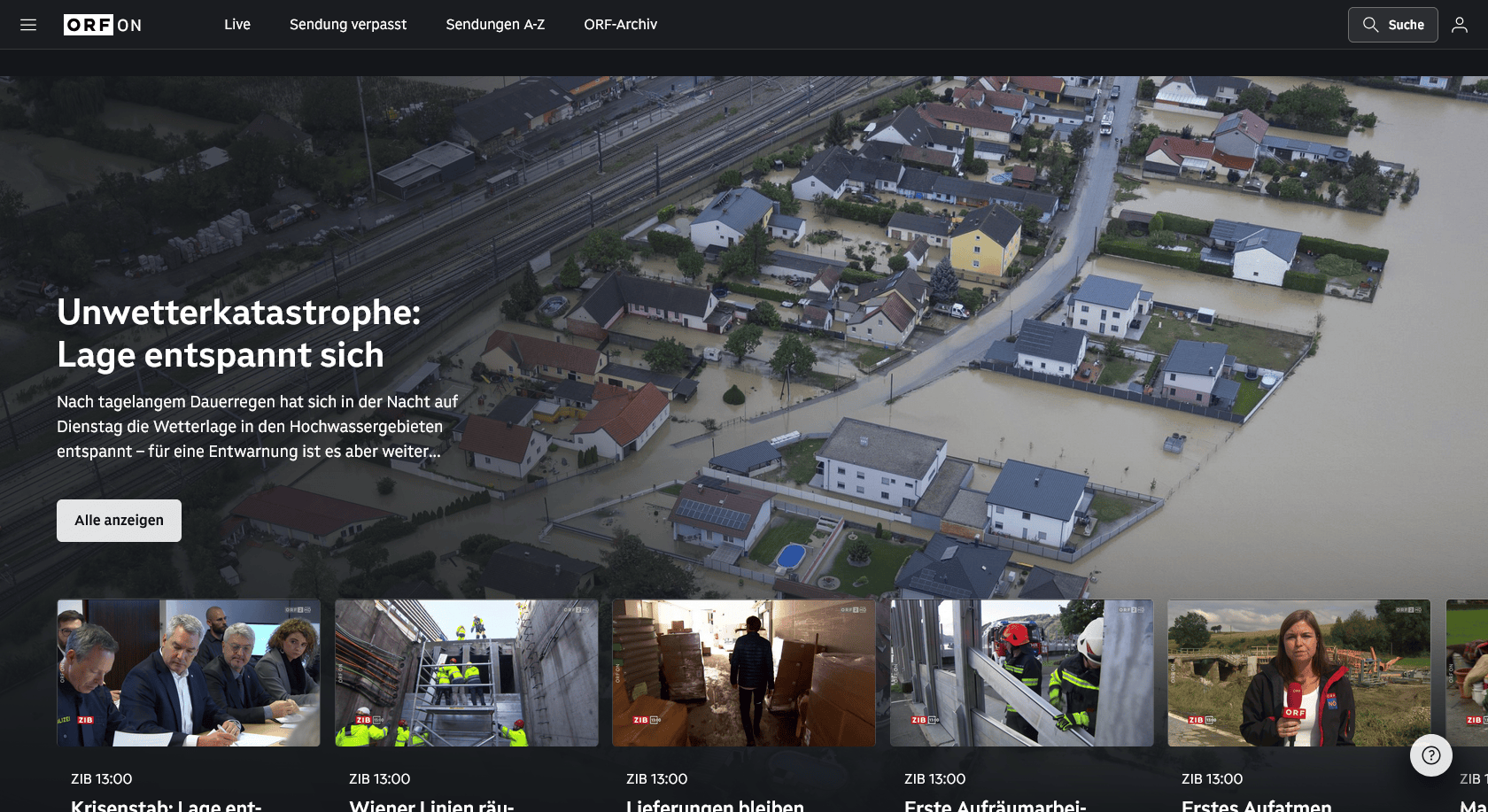Climate protection and protection against climate change

Despite record summer heat and now record flooding, Austria's media seem to be more concerned about the costs than the benefits of climate protection. For electioneering politicians, climate action appears to be limited to crisis management. Pausing emission reductions, as they suggested before the floods, will bring new, more severe crises in the future.
Most of Austria's parties seem to think they have done enough, or maybe even too much, to reduce greenhouse gas emissions, for now. At least that's what I deduce from the questions posed by TV journalists and the comments in newspapers. It worries me because it is based on a fundamental miscalculation of the situation. A big concern has been a rhetoric about the cost of emission reductions. All the while, they oversee that in recent years, our dependency on fossil fuels has cost us more dearly than the current phase-out. One can see, however, that many comment-field comments suggest high energy prices are the result of climate action, rather than the consequent of a combination of earlier climate inaction and Russia's strategy of pressing Europe to not interfere with its recolonization of the Ukraine.
As one of 15 climate researchers in the EUs Climate Advisory Board, I contributed to a report on the 2022-23 energy price crisis and two subsequent comments. Our analysis is also shared by other experts: The trigger of the crisis was clearly Central Europe's dependence on Russian gas, which Russia instrumentalized in the war against Ukraine. Russia had already cut gas supplies before the attack on Kyiv and emptied gas storage facilities in Central Europe unnoticed.
Russia intended gas shortage
The energy transition that has been initiated has made it easier for Europe to respond to the reduced gas supply. On the one hand, renewable energy supply had already begun, and on the other hand, Germany was able to reactivate old coal-fired power plants that had just been taken out of operation at short notice. In addition, there were already plans, expertise, and capacity to save energy. Thanks to these circumstances, the crisis was overcome relatively quickly, but not painlessly. In retrospect, one can only state that natural gas was an expensive source of energy.
In its report, the expert council recommended doubling the investment rate in renewable energies, saving energy, and replacing fossil gas and oil with electricity. We advised against energy subsidies. Instead, we recommended cushioning social impacts through targeted donations.
Posters of populist right and left parties (FPÖ, KPÖ) before the European elections blamed the EU for the high prices. They indicated that inflation would be brought back under control by currying favor with Russia. These parties seem to want to return to the dependence of 2022 that triggered the energy crisis in the first place.
Energy transition strengthens Europe
Only increasing domestic energy production and avoiding energy waste can reduce Europe's dependence on fossil fuel imports. Unfortunately, the expert council against subsidizing fossil energy was ignored. Investments in solar systems, heat pumps, EVs and home insulation have fallen far below the capacity of the economy today. In this way, we are prolonging our dependence on imported fossil energy and keeping our CO2 emissions higher than necessary.
A review of European climate policy by the Council of Experts shows that great progress was made in the last EU legislative period, which contributed to the reduction of CO2 emissions. At the same time, there are many planned measures that have been prepared but not yet decided, and decisions that have yet to be implemented by the member states. One example of this is the energy-efficient renovation of buildings.
Reducing climate change is important to protect ourselves from climate damage, even if it is not sufficient given all the emissions we have already caused.
Austria has not been a pioneer in climate policy; rather it lacks behind in the formal policy making process, despite progress in actual measures in recent years. Journalists no longer ask about the topic, and politicians hardly mention it. Instead, the population should be prepared for imminent, difficult decisions. I am worried that the new Austrian government could become a brake for EU climate protection. This would be irresponsible.

